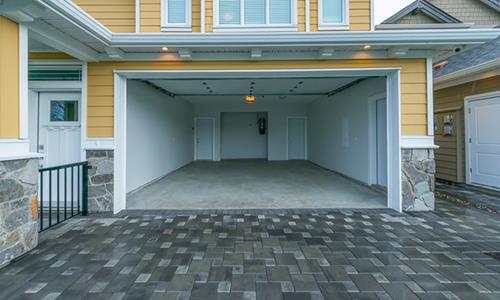Homeownership is a journey to be celebrated. There are many ups and downs in this process, but in the end, achieving your homeownership goals is the top priority.
If you are self-employed or freelance, the mortgage application process looks different than it does for those with a traditional employer. Gathering all necessary materials, remaining organized, and keeping track of your income are a few of the factors you must keep in mind.
What Qualities do Mortgage Lenders Look for in Self-Employed Borrowers?
If you’re self-employed and looking to get a mortgage loan, many mortgage lenders offer options to fit your situation. However, it’s important to keep in mind the qualities of an ideal borrower.
Financial Stability
Whether you’re self-employed, work freelance on the weekends, or have a corporate 9-to-5 job, financial stability is crucial when applying for a home loan. Simply put, your mortgage lender needs to know you have the means and ability to pay back your mortgage.
Credit Score
The higher your credit score is, the more options available to you when it comes to securing a home loan or a lower interest rate (especially for those who work for themselves). We require a credit score of at least 640 for our self-employed homebuyer program.
Down Payment
A large down payment is not always required to get a mortgage. But just like having a good credit score, providing a down payment can open up doors to a wider variety of loan programs. This also helps prove the legitimacy of your employment – if you have money to put down on your new home, you likely have a steady source of income. As little as 15% down is required for Waterstone Mortgage’s bank statement program for self-employed homebuyers.
Required Documentation for Self-Employed Homebuyers
One of the most important aspects of qualifying for a home loan is proving your business’ income. If you work for yourself, this can be a little tricky since you don’t have an offer letter or traditional W2.
Waterstone Mortgage’s bank statement program requires 12-24 months of business (P&L) and personal bank statements. Unlike many other loan programs for self-employed buyers, we don’t require tax returns or extensive documentation.
In some instances, the following documents may be required in addition to your bank statements:
- Business license
- Proof that business is open and operational
- YTD profit and loss statement
- Evidence of insurance
- Statement of business expenses
Required Documentation for Self-Employed Homebuyers
One of the most important aspects of qualifying for a home loan is proving your income. If you work for yourself, this can be a little tricky since you don’t have an offer letter or traditional W2. Any of the following documents can help prove your employment and income.
- Business license
- Proof that business is open and operational
- Two years tax returns
- YTD profit and loss statement
- Most recent 3 months bank statements
- Evidence of insurance
- Statement of business expenses
Things to Remember
Organize Your Financial Documentation
Keep your financial documentation organized and separated in advance. This will do wonders for you as you apply for your loan, and it’ll relieve pressure off searching for your income documentation when applying.
The most important documentation to have on hand is your bank statements. Going back as far as 24 months and collecting your bank statements (both personal and business) will be essential for staying organized and moving the mortgage process along smoothly.
Keep Your Credit in Check
Before starting the home loan process, it is important to monitor your debt-to-income ratio (DTI) – whether you’re self-employed or not. In addition, keeping an eye on your credit score is also extremely helpful.
Both of these components focus on reducing debt and measuring your available credit prior to starting the mortgage process. By going through information such as this, you may have a better idea of whether the timing for this mortgage application is right or if you need more time to prepare.
Being self-employed should not hinder your ability to buy a home or apply for a mortgage. If you are considering taking this step in your homeownership journey, find a home loan expert in your area to chat about what Waterstone Mortgage can do to help.





